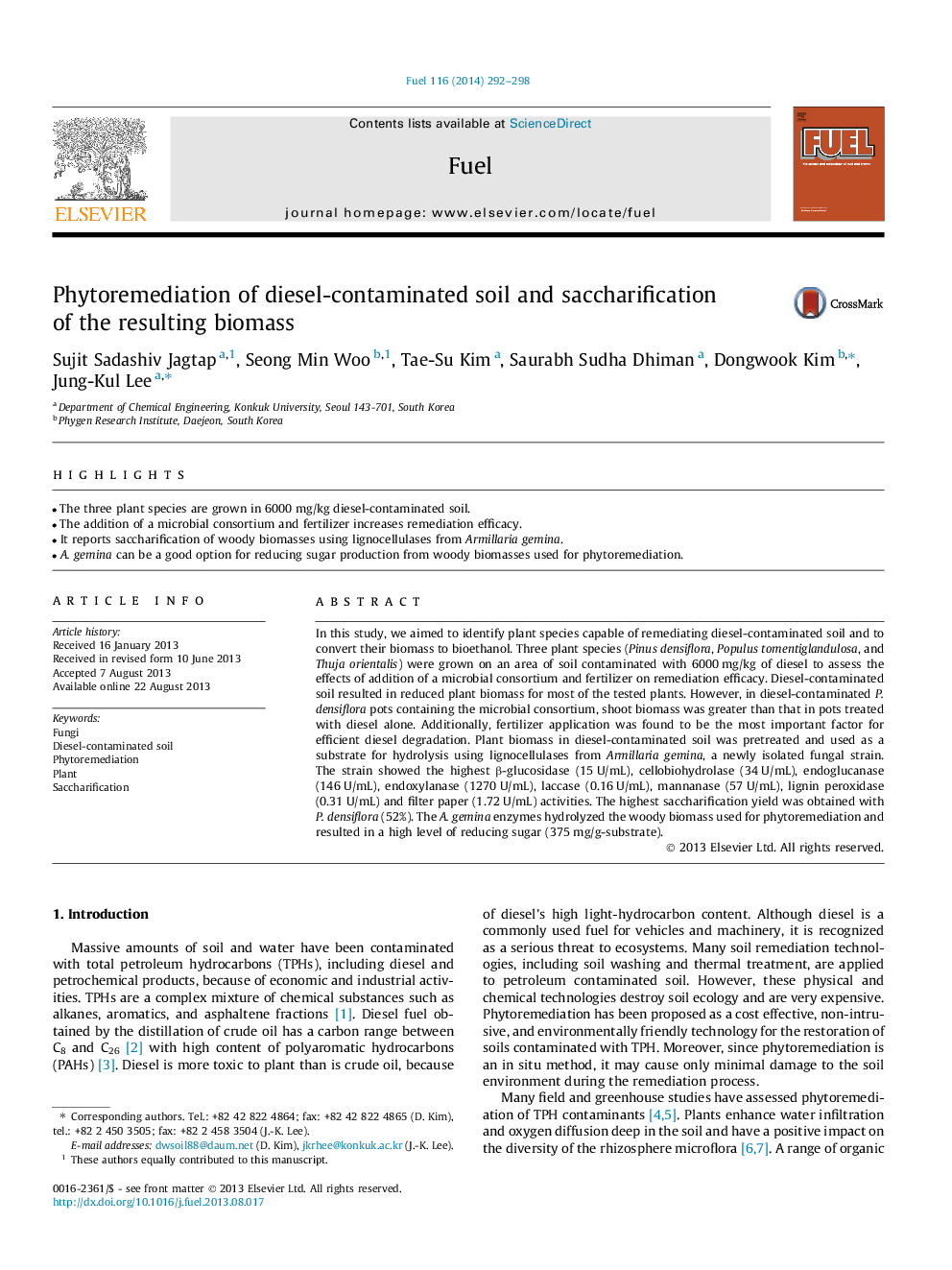| کد مقاله | کد نشریه | سال انتشار | مقاله انگلیسی | نسخه تمام متن |
|---|---|---|---|---|
| 6638775 | 461164 | 2014 | 7 صفحه PDF | دانلود رایگان |
عنوان انگلیسی مقاله ISI
Phytoremediation of diesel-contaminated soil and saccharification of the resulting biomass
ترجمه فارسی عنوان
فیزیوتراپی از خاک آلوده به دیزل و واکنش زیست توده حاصل می شود
دانلود مقاله + سفارش ترجمه
دانلود مقاله ISI انگلیسی
رایگان برای ایرانیان
کلمات کلیدی
قارچ، خاک آلوده به دیزل، فیزیوتراپی، گیاه، صحیح کردن،
موضوعات مرتبط
مهندسی و علوم پایه
مهندسی شیمی
مهندسی شیمی (عمومی)
چکیده انگلیسی
In this study, we aimed to identify plant species capable of remediating diesel-contaminated soil and to convert their biomass to bioethanol. Three plant species (Pinus densiflora, Populus tomentiglandulosa, and Thuja orientalis) were grown on an area of soil contaminated with 6000 mg/kg of diesel to assess the effects of addition of a microbial consortium and fertilizer on remediation efficacy. Diesel-contaminated soil resulted in reduced plant biomass for most of the tested plants. However, in diesel-contaminated P. densiflora pots containing the microbial consortium, shoot biomass was greater than that in pots treated with diesel alone. Additionally, fertilizer application was found to be the most important factor for efficient diesel degradation. Plant biomass in diesel-contaminated soil was pretreated and used as a substrate for hydrolysis using lignocellulases from Armillaria gemina, a newly isolated fungal strain. The strain showed the highest β-glucosidase (15 U/mL), cellobiohydrolase (34 U/mL), endoglucanase (146 U/mL), endoxylanase (1270 U/mL), laccase (0.16 U/mL), mannanase (57 U/mL), lignin peroxidase (0.31 U/mL) and filter paper (1.72 U/mL) activities. The highest saccharification yield was obtained with P. densiflora (52%). The A. gemina enzymes hydrolyzed the woody biomass used for phytoremediation and resulted in a high level of reducing sugar (375 mg/g-substrate).
ناشر
Database: Elsevier - ScienceDirect (ساینس دایرکت)
Journal: Fuel - Volume 116, 15 January 2014, Pages 292-298
Journal: Fuel - Volume 116, 15 January 2014, Pages 292-298
نویسندگان
Sujit Sadashiv Jagtap, Seong Min Woo, Tae-Su Kim, Saurabh Sudha Dhiman, Dongwook Kim, Jung-Kul Lee,
